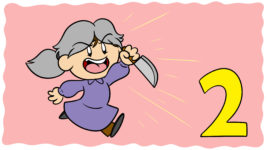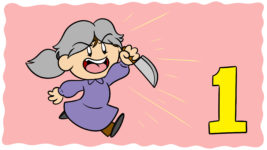Opinions are the lifeblood of literature. To perceive the world in an individual way, and to share that perception with the world, is where all art starts. One of the great qualities of a story is that it allows you to experience someone else’s life, world and opinions, and come away a different person for the experience. With all of this being the case, how can it also be true that your opinions have the potential to ruin your writing?
The answer is that delivery matters. The way in which the reader encounters your opinions can be the deciding factor as to whether they plough through your book or hurl it at the nearest trashcan. Yes, any opinion has the potential to offend someone, but there’s also a way of inviting someone to engage with your opinions whether they agree with them or not.
That’s why in this article I’ll be exploring the subtle writing choices you can make to avoid alienating readers, and talking about how opinions can influence writing without taking center stage. As with any discussion of opinions, most people are naturally more sensitive to issues when they appear within content they already dislike, so be aware that in the examples used below it’s the stylistic choice, not the opinion being shared, that’s under the microscope.
Opinions and points of view
For ease of discussion, it’s useful to utilize two separate terms when discussing opinions. The first of these is ‘point of view’. A person’s point of view is the combined beliefs, assumptions, experiences and ideals that contribute to their perception of the world around them – it is quite literally the point from which they view the world. While your point of view can and should change through life, it’s impossible to extricate it from your writing. Someone who removes every trace of what they believe from a piece of writing is basically writing a textbook.
The second term is the ‘opinion’ itself. An opinion can be seen as a single unit – a belief regarding a single issue or occurrence. Your point of view is made up of many different opinions, and in turn helps you to form new opinions.
Points of view are vast and difficult to define, taking in a great deal of who a person is. Opinions can generally be encapsulated in a sentence. Liberalism and conservatism are, more or less, definable as ‘points of view’. In contrast, views on things such as gun ownership or veganism are opinions. Here we can see not just the nature of the terms, but that there is a strong relationship between the two.
Point of view and storytelling
One of the biggest differences between points of view and opinions is that points of view lend themselves to exploration. An opinion can be immediately countered or dismissed, but a point of view is too vast and complex to be dealt with so quickly.
This is the main reason why readers are more amenable to points of view than opinions. Points of view can be explored slowly, so that while a reader may disagree with or dislike them, they do so by engaging with them over a long period. Opinions are more immediate, so the reader is asked to make a snap decision about how they feel. If they disagree with the opinion then this is likely to be disruptive to their engagement with the story, but even if they don’t the need to make such a quick decision may turn them off.
Opinions can be dismissed but points of view are too complex to be dealt with quickly.Click To TweetChuck Palahniuk’s Fight Club is an excellent example of exploring a point of view. The anarchic, masculine character Tyler Durden slowly unveils a manifesto of self-sufficiency and machismo over the course of the book. Many readers who would sneer at the immediate opinions that make up this belief system are actually charmed by it, and there are countless readers who walk away oblivious to the passages where Palahniuk refutes Durden’s ideology.
I’ve met God across his long walnut desk with his diplomas hanging on the wall behind him, and God asks me, “Why?”
Why did I cause so much pain?
Didn’t I realize that each of us is a sacred, unique snowflake of special unique specialness?
Can’t I see how we’re all manifestations of love?
I look at God behind his desk, taking notes on a pad, but God’s got this all wrong.
We are not special.
We are not crap or trash, either.
We just are.
We just are, and what happens just happens.
And God says, “No, that’s not right.”
Yeah. Well. Whatever. You can’t teach God anything.– Chuck Palahniuk, Fight Club
Palahniuk is able to do such a masterful job partly because Durden’s views are not the author’s, but Fight Club shows that it’s entirely possible to get someone to engage with, even enjoy, a point of view that they’d reject in everyday life.
The key, then, is to approach your own point of view and opinions as if they’re someone else’s. Try to remove yourself enough to cast a critical eye over your own views, and recognize what a reasonable person of a different mind-set could engage with, and what would be jarring for them.
The reader should be allowed to explore the point of view you’re offering without stubbing their toe on any opinions; to gradually acclimatize to the way you see things and think about your beliefs and the reasons behind them.
Of course this is a difficult task, but worry not: there are a few incredibly effective exercises that can help.
1. Hunt out statements
By their nature, opinions appear as statements. ‘X is wrong’, or ‘we should all Y’ are absolutes and require an absolute reaction. This doesn’t mean you can’t include any statements, or even any opinions, but you need to be aware that they will stick out to the reader. Because of this, it’s a good rule to find and remove any statements of belief you make as a third-person author. Not only will they irritate the reader but they will make your presence felt, and make them more aware of your story as a fiction.
Statements from characters are more acceptable, but make sure that they’re the statements those characters would make. If a character says something because it’s that characters opinion then a reader will accept it, and their reaction to that opinion will fall on that character. If, however, it feels like you’re voicing your own opinion through a puppet this can cause big problems…
Voicing your own opinion through a puppet can cause big problems.Click To Tweet2. Sew up your mouthpieces
A mouthpiece is a character who says something on behalf of the author. In Fletch, Too author Gregory McDonald places his investigative reporter character Fletch in Nairobi. Fletch has many discussions about Africa and the philosophies that exist both within and about it. While many of these are subtle, there are many occasions where characters make statements that seem designed just to raise a point within an argument.
Whether these are McDonald’s opinions or not is unclear, but it’s clear that they are opinions he is expressing by using the characters as mouthpieces.
Juma asked, “Did you ancestors buy slaves, do you think?”
“No,” Fletch answered.
“I’m pretty sure not,” said Barbara.
Juma ran his bare foot over the smoothness of the floor stone. “You see, that is how we must think of things.”
“What do you mean?” Fletch asked.
“I’m pretty sure my ancestors sold slaves. Do you see? Which is worse – to buy people or to sell them?”
– Gregory McDonald, Fletch, Too
This is followed by a break in the chapter, giving it even more rhetorical weight as it ‘ends’ the discussion. Whatever the reader’s view about the point made, it is still uncomfortable to feel that an author has inserted an opinion into the chapter.
Worse still, Juma has been shown as a wise character throughout the plot. This means that McDonald creates the fiction of a wise black man, and then uses him to deliver an opinion that, as the author, he wants heard.
The reader is first and foremost concerned with the story as a reality, and so rather than taking the opinion on board they may react to the disservice done to the character. They may also feel offended, as if the author has tried to trick them.
Including your opinion in a story may offend your readers.Click To TweetIf this is the reaction to the use of author-friendly ‘mouthpiece’ characters, the offence will be even greater on creation of a straw man…
3. Kill your straw men
Though it has become something of an internet buzz word, creating a ‘straw man’ refers to the practice of creating and then rebutting a fictional representative for an argument you wish to oppose. Obviously for authors the potential for straw men is limitless. Characters can believe anything, can believe many contradictory things, and will admit their defeat under circumstances of the author’s choosing.
A reference to the dummies on which sword-fighters used to practice, creating a straw man generally involves paraphrasing an opponent’s argument in such a way that it misrepresents their actual point while making it easier to argue against.
Writer and philosopher Ayn Rand is frequently accused of creating straw men in her work. This can be seen in her novel Anthem, where she characterizes the end-goal of a socialist government as a complete abnegation of the self (citizens are banned from using the word ‘I’).
We are one in all and all in one.
There are no men but only the great WE,
One, indivisible and forever.– Ayn Rand, Anthem
As with the mouthpiece, readers will recognize and be offended by straw men. Unlike with mouthpieces, however, authors run the risk of enraging readers who hold the views that a straw man character is misrepresenting.
While you may relish the upset of ideological opponents, it doesn’t make for a good read and it certainly won’t convince anyone to re-examine their own opinions.
While a sensible author should avoid straw men characters at all costs, this can be a difficult job. After all, you may believe that the logic of an opposing ideology does actually lead to the beliefs your straw man is expressing. Even if you’re on your guard against this, we all have biases, and it can be difficult to accurately represent someone with whom we strongly disagree.
There are two ways to ensure you don’t fall into this trap. The first is to do a lot of research, and ensure that characters who subscribe to an ideology you disapprove of don’t say anything that real followers haven’t said. It’s also important to keep in mind that every ideology has its fanatics, and not to have a character espouse extreme beliefs as if they were the standard for that point of view.
For example, if a feminist character is campaigning for male sterilization, or a Muslim character for instating worldwide Sharia, they should be depicted as extreme examples of an ideology, not regular ones.
The second way to ensure you don’t construct a straw man is a technique applicable to most aspects of keeping your opinions from taking over your story…
4. Employ your opposite
While it’s difficult to actually hire your ideological opposite – though if you have the chance, do it – it is possible to become them for a little while.
You can do this by identifying your own beliefs and mapping them onto the representation of alternative beliefs you’ve mentioned – if someone had represented your beliefs as you’ve represented theirs, which bits would offend you and, crucially, why?
As I said at the beginning, the goal is not to remove your own point of view, or to be any less critical of other people’s, but to identify the ways in which you’re communicating. A sincere questioning of another ideology will be accepted by the reader in a way which a straw man will not. Ayn Rand, for example, would likely balk at a representation of objectivism as a single man having killed off every other human, but that would be in the same extremist manner of reading as her Anthem government.
This is not a case of ‘do unto others as you would have them do unto you’, because there are many ideologies which need to be questioned, and huge benefits to questioning most ideas, but few of us could say we want our opposites to start criticizing us. Instead the rule is more like ‘do unto others through the methods you would have them do unto you’. It’s a sort of authorial Geneva Convention, acknowledging that while we may cross each other, there is a fair way to do so.
Do unto others through the methods you would have them do unto you.Click To TweetWriting well is its own reward
Of course being fair may not be your goal, but it will have the side effect of making your writing more approachable to readers, allowing them to engage with your points and avoiding those sudden moments of opinion that destroy their suspension of disbelief and yank them out of the story.
In the end, it helps to think of your own beliefs as salt on the meal of your story. A little bit adds flavor – and may even be essential – but too much will render it inedible, and if there’s one thing everyone wants, it’s for your book to taste as good as possible.
How To Stop Your Opinion Taking Center-stage In Your WritingClick To TweetFor more on how staying objective can improve your work, check out Four secrets that will turn you into an objective editor. Or if you fancy a lighter take on this issue, try A writer’s life #18 Literary Revenge.






2 thoughts on “How To Stop Your Opinion Taking Center-stage In Your Writing”
In my opinion, this is excellent counsel. Thanks.
Hi Jim,
Thanks for the kind words!
Best,
Rob